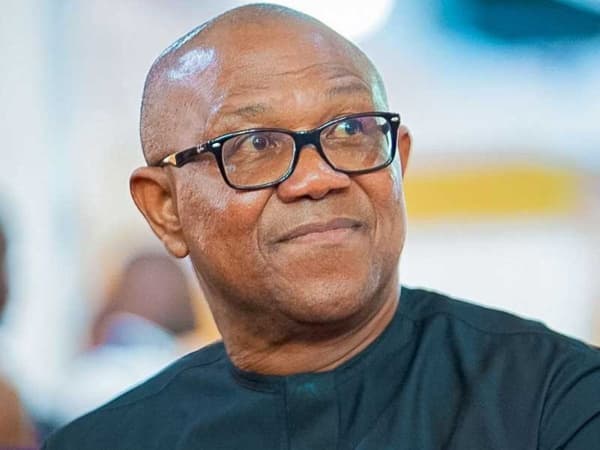APC’s Incompetence Has Diminished Nigeria-Peter Obi

Labour Party 2023 Presidential candidate, Mr. Peter Obi, said the All Progressives Congress (APC) administration, in the last 10 years, has greatly diminished the country.
Obi, who stated this, at a press briefing, in Abuja, lamented that though Nigeria at Independence on October 1, 1960 gained global acclaim as an emerging political and economic superpower in Africa, leadership failures had derailed the vision.
The opposition leader, while alleging that President Bola Tinubu administration has inflicted untold hardship on the people, noted that in the last one year, over 15 million Nigerians have been pushed into acute poverty, with more 150 million citizens lacking access to basic healthcare, education, water and sanitation.
“This number grows daily under an APC government that pursues brutal revenue-driven policies while ignoring the welfare of its people. Nigeria now ranks among the lowest in the world on human development indicators.
“This government taxes struggling citizens and small businesses heavily, while indulging in extravagance. Billions are spent on new presidential jets, yachts, and luxury cars that cost more than the entire 2024 budget for primary healthcare.”
“The Vice President’s residence was renovated at a cost of N25 billion, more than the combined capital budgets of six major federal university teaching hospitals. Over N10 billion was allocated for car parks and canteens for the National Assembly, more than the capital budget of the Ministry of Science and Technology at a time when science is crucial to national growth.
“Meanwhile, Nigerians pay more for everything and receive less. Passports, permits, electricity, petrol, food, rent, and healthcare all cost more. Yet power supply remains unreliable, food insecurity deepens, and UNICEF and WFP project that 33 million Nigerians will face acute hunger in 2025.”
Obi recalled that at the end of 2007, the country’s total debt was about N2.5 trillion, which amounts to 10 percent of GDP, after President Olusegun Obasanjo’s administration secured debt forgiveness of over $30 billion.
He added that by 2014, the country had become Africa’s largest economy and was poised to achieve middle-income status, noting that in 2015, the then ruling PDP was defeated in the Presidential contest, marking a milestone in Nigeria’s democracy.
“Today, the picture is bleak. Our total debt stands at about N175 trillion, nearly 50 percent of GDP, without any improvement in productive sectors. Nigeria has fallen to the fourth-largest economy in Africa, behind South Africa, Egypt, and Algeria. Our democracy is now described as undemocratic.
“This government borrows recklessly not for investment in productive infrastructure but for wasteful consumption. Insecurity has further crippled our economy. Nigerians now live in fear of travelling by road. Kidnapping has become rampant, with billions paid in ransom.
“Incompetence in security management has turned our country into one of the most terrorised and unsafe nations in the world. Cronyism, corruption, and disregard for the rule of law have scared away investors, while other African nations overtake us as preferred investment destinations.
“Despite this mismanagement, Nigeria’s potential for greatness remains. We cannot give up on the dream of a prosperous and secure nation. What we need is competent, compassionate, and committed leadership. Our priority must be prudent economic management, investment in human capital, rule of law, and infrastructure development. We must mobilise our enormous natural resources to drastically reduce poverty and achieve rapid, sustained growth.
“We should learn from nations like China, India, Indonesia, and Bangladesh, which have turned around their economies through disciplined leadership and people-centred policies. Nigeria too can rebound, but only if we exit the path of incompetence and fiscal irresponsibility.”
Despite these challenges, Obi stressed that Nigeria’s potential remains vast.
According to him, what the country needs is “competent, compassionate, and committed leadership” that would focus on prudent economic management, human capital development, rule of law, and infrastructure investment
Drawing lessons from nations like China, India, Indonesia, and Bangladesh, he argued that Nigeria too can achieve rapid economic transformation if it embraces people-centred policies and fiscal discipline.
He, therefore, called on political leaders to put aside personal interests, reject corruption and bigotry, and embrace a new form of politics that prioritises prosperity for all Nigerians.
“The current administration’s failures must not lead us to despair.
“They should instead fuel our determination to rebuild. Against all odds, we will return Nigeria to the path of prosperity and justice. Nigeria will rise again,” he stressed.





